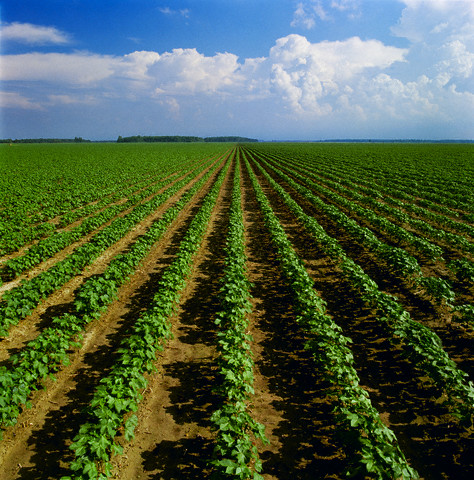HOLLYWOOD—Who would’ve thought that by schlepping my Adonic carcass to the mecca of tinsel, I would discover agriculture. Yes! It’s “Green Acres” in reverse: kid from a small farming town comes to the big city, and becomes a farmer. Recharged by generations underneath a smothering skin of concrete and asphalt, the fallow Hollywood soil, once home to acres and acres of renowned orange groves, is just itching to become fruitful again.
My own eyes have seen the power of Hollywood soil. A dirty thumb needn’t be endured, much less a green one. You just need to be there for the harvest. The fruit trees take care of themselves; they are organic in the purest sense—no spray, no irrigation, no sweat. When I finally decide to don bib overalls and chew on a straw all day, it will be solely a fashion statement. Why, with the ease of the crop, the Hollywood farmer could wear a white tuxedo into the field.
Last summer (growing season in farmers’ parlance) was my first agricultural foray. I threw some seeds for butternut squash in a corner of my garden. It was late in the season, July, and still the clover-like leaves sprouted out of the ground. I thinned them out as the seed packet instructed. In the August sun one vine predominated and snaked around inside the fence, and yet bore no fruit until reaching the southern exposure at the other side of the fence: there it sprouted and grew a single squash that reached full succulence in late September. The most mouth-watering, delicious squash ever to grace a sautéing pan. Extraordinary pride came from planting a single seed, watching it grow and tasting the results.
Becoming a front-yard farmer has raised an awareness for the earthly elements, the sun and its direction, the precious water without which a plant can wither. Hitherto oblivious of the seasons, I now grasp the importance of the seasons: fall means oranges, spring means the slow-ripening tangerines, tomatoes start in August, grapefruit are almost year-round. I’m licking my chops as the German lady’s orange tree ripens, as the orb-laden branches turn from lime green to bright orange, and the tree makes good its promise of fleshy fruit that will fill a room with the marvelous smell of broken orange. Planted half a century ago by her daughter in a narrow space between cottages, the tree yields the sweetest navel oranges. Unlike the horribly bitter, face-scrunching peels of store-bought oranges, the mild rind of these Hollywood organics can be eaten.
The bounty of these resilient citrus trees in inexhaustible like oranges, lemons and tangerines. Many grapefruit as I want: last years a non-profit harvested 318 pounds of grapefruit after I had my pick for months. And at least a hundred more were left on the tops of the branches.
The tangerine tree was the focus of a magical neighborhood event, a whole Saturday afternoon of cutting branches and collective harvesting. Bag upon bag of the incredibly orange fruit was harvested. We have vegetables, too. The lady who bought her cottage for $5,000 in 1940 has cherry tomatoes this year. The eye sharpens as new ones turn from a jaundiced green to bright lipstick-red almost overnight. They will rot on the vine before somebody picks them all.
These trees and plants teach a lesson in abundance, bringing forth prodigal bounty from the earth. In the natural order one unwatched, un-watered tree produces more fruit than a single family can possibly consume. If we all enjoyed these fruits, we might be a bit more at ease about “putting something on the table.” And it will shorten our grocery lists, too. In front of my house Asian chile bushes now blossom, which augurs the arrival of fruit. I’ll never buy a chile again, and never again will grapefruit, oranges, tomatoes or chile peppers go into my grocery cart. Nothing ever will taste as good as something I grow myself, with a little help from the rich Hollywood soil and the awesome Southern California sun.






